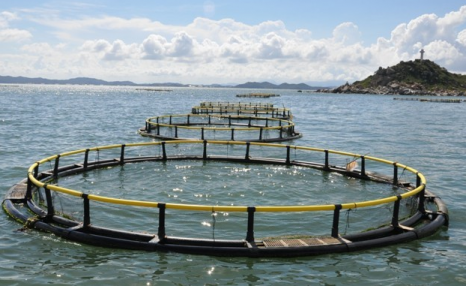Phosphatidylserine for Aquaculture,Application Prospects
Time:2024-09-20
The application prospects of phosphatidylserine in aquaculture are broad, primarily due to its unique biological properties and potential health benefits. Here is a detailed analysis of its application potential:
1. Enhancing Stress Resistance in Farmed Animals
·Challenges of High-Density Farming: In high-density farming environments, aquatic animals are easily affected by various stress factors, such as water quality fluctuations, temperature changes, and disease outbreaks. These stressors lead to the production of large amounts of free radicals and harmful substances in the animals' bodies, which in turn impair their physiological functions and immune systems.
·Role of phosphatidylserine: As an important component of cell membranes, phosphatidylserine regulates nerve transmission, enhances cell membrane flexibility, and promotes cell repair. These properties help farmed animals alleviate stress responses and reduce the negative impacts of stress.
·Application Prospects: In aquaculture, adding an appropriate amount of phosphatidylserine can improve the stress resistance of farmed animals, reduce the incidence of diseases and mortality caused by stress, and thus enhance farming efficiency.
2. Boosting Immune Function
·Importance of the Immune System: The immune system is key to aquatic animals’ defense against pathogen infections and maintaining health. A robust immune system ensures that farmed animals stay healthy in the complex and variable farming environment.
·Immune Modulatory Effects: Phosphatidylserine can activate the metabolism and synthesis of various enzymes, promote the proliferation and differentiation of immune cells, and thus enhance the body's immune functions. Additionally, it can increase the activity of antioxidant enzymes, eliminating free radicals and harmful substances in the body, thereby protecting cells from damage.
·Application Prospects: In aquaculture, adding phosphatidylserine can strengthen the immune system of farmed animals, increasing their ability to resist pathogen infections, reducing the occurrence and spread of diseases, and ensuring the healthy development of the aquaculture industry.
3. Promoting Growth and Development
·Key Factors in Growth and Development: The supply of nutrients, suitability of the growth environment, and genetic traits of farmed animals all influence their growth and development rates.
·Promoting Effects: As a key component of cell membranes and a precursor of neurotransmitters, phosphatidylserine plays an important role in cell growth, division, and metabolism. Adding an appropriate amount can promote cell proliferation and differentiation, accelerating the growth and development of farmed animals.
·Application Prospects: In aquaculture, adding phosphatidylserine can shorten the farming cycle, increase the growth rate and quality of farmed animals, and thus improve farming profitability.
4. Market Demand and Policy Support
·Market Demand: With increasing consumer demand for healthy foods and higher quality requirements for aquatic products, the market demand for high-quality, high-value aquatic products is continuously growing. As a nutrient with multiple health benefits, phosphatidylserine is expected to find widespread application in aquaculture.
·Policy Support: Governments are paying significant attention to the development of the aquaculture industry and have introduced a series of policy measures to promote its transformation, upgrading, and sustainable development. These policies provide a favorable environment and market opportunities for the application of phosphatidylserine in aquaculture.
The application prospects of phosphatidylserine in aquaculture are promising. However, in practice, it is essential to consider factors such as the species of farmed animals, their growth stages, and the farming environment to ensure its efficacy and safety through scientific and rational supplementation and management.


 CN
CN





